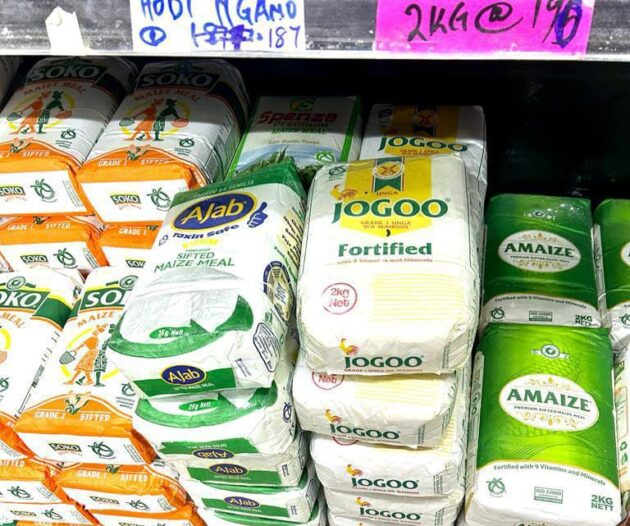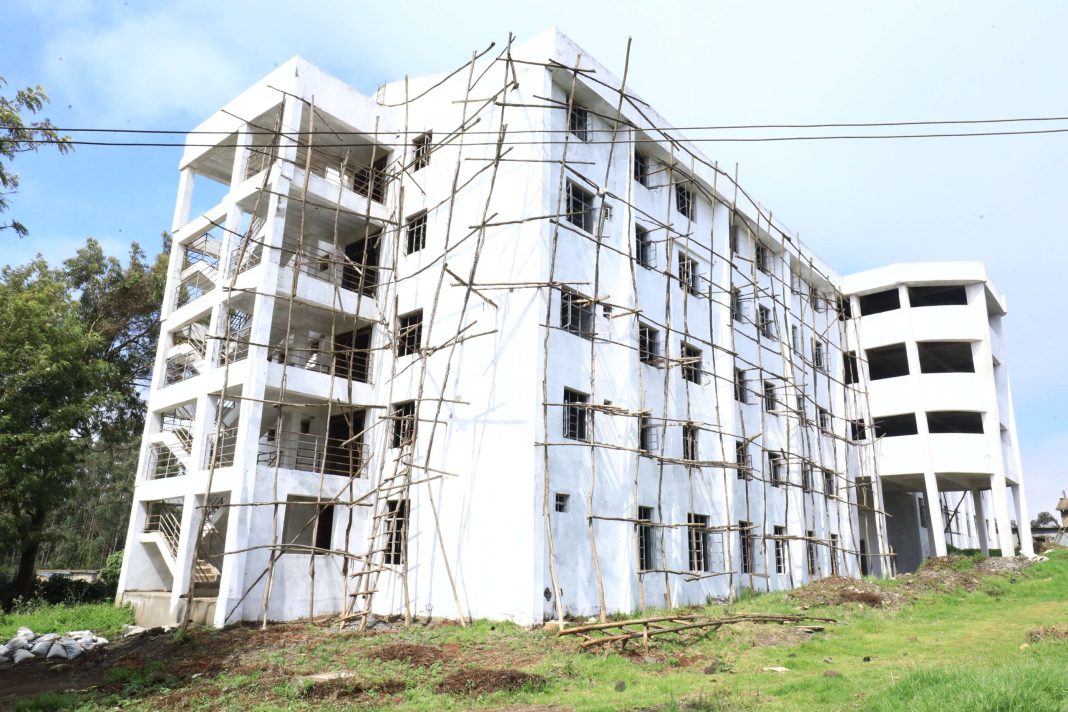Maize Flour Prices Surge to Ksh175 Despite Government Assurances of Stability
Kenyans are facing rising maize flour prices yet again, despite recent government assurances that costs would remain stable.
A market survey has revealed that a 2kg packet of maize flour now retails between Ksh159 and Ksh175, depending on the brand and retail outlet. This marks a steep rise from early January, when the same pack cost as low as Ksh120.
Currently, the cheapest packet goes for Ksh159, while the most expensive is tagged at Ksh175. In the same period, a 90kg bag of maize has soared to Ksh6,400, up from Ksh4,800 in January.
The continued price increase comes just three months after Agriculture Cabinet Secretary Mutahi Kagwe publicly assured the public that maize flour prices would remain unchanged.
“There should be no panic about the price of unga going up. It is not going to go up. We are going to ensure that it doesn’t go up by releasing the strategic maize reserves that we have. We have got strategic reserves,” Kagwe stated on May 5.
At the time, the Cabinet Secretary cited the availability of strategic reserves and dismissed fears of a price hike.
However, agricultural experts have attributed the price surge to low maize supply caused by recent floods, harvesting delays, and increasing demand from both food processors and livestock feed producers.
Frustrated consumers have taken to social media to demand long-term solutions. Many argue that repeated price spikes are destabilizing household budgets and making essential food items unaffordable for the average Kenyan.
“This price hike hits hard at the heart of many families’ budgets. We need sustainable solutions that protect both farmers and consumers alike,” one concerned Kenyan commented online.
In response, some government officials and nutritionists have encouraged households to diversify their diets and consider affordable alternatives such as cassava, yams, plantains, mokimo, matoke, and arrowroots (nduma) to reduce overdependence on maize.
The situation now calls for swift action and sustainable interventions from the Ministry of Agriculture, as Kenyans grapple with the rising cost of their staple food.







gcwi35
взгляните на сайте здесь https://kra36at.at
Activating a promo often requires a promo code. These are typically entered during sign-up to unlock the reward. https://www.imdb.com/list/ls4107686388/ Betting free offer
Make the most of your promo credits. Focus on familiar sports or leagues. https://www.imdb.com/list/ls4107230798/ Claim betting free credit
87f7lx